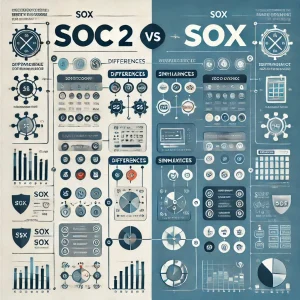In the realm of internal audit, possessing a Certified Public Accountant (CPA) certification is not just a badge of honor; it is a vital credential that signifies expertise, credibility, and a commitment to the highest standards of the profession. The CPA certification is essential for internal auditors as it enhances their ability to assess financial risks, ensure compliance, and provide valuable insights into organizational performance. However, maintaining this certification is not a one-time achievement; it requires ongoing diligence and awareness of the CPA exam expiration process.
The CPA certification is subject to specific expiration timelines, which can vary based on state regulations and the individual’s continuing professional education (CPE) requirements. For current CPA holders, understanding the nuances of this expiration process is crucial. Failing to meet the necessary CPE hours or not renewing the certification on time can lead to a lapse, jeopardizing one’s professional standing and career opportunities in internal audit.
As we delve into this topic, it is essential to identify the warning signs that may indicate your CPA certification is at risk of expiring soon. By recognizing these signs early, you can take proactive measures to ensure that your certification remains valid, allowing you to continue your vital work in internal audit without interruption.
Understanding CPA Certification Expiration
In the realm of accounting and finance, maintaining a Certified Public Accountant (CPA) certification is crucial for professionals, particularly those in internal audit roles. Understanding the nuances of CPA certification expiration is essential for ensuring that your credentials remain valid and that you continue to meet the professional standards required in your field.
Definition of CPA Certification Expiration
CPA certification expiration refers to the lapse of a CPA’s license due to failure to meet renewal requirements within a specified timeframe. Each state has its own regulations regarding the duration of CPA licenses, typically ranging from one to three years, after which CPAs must renew their licenses to maintain their certification status. This process often involves completing continuing professional education (CPE) credits and submitting renewal applications to the relevant state board of accountancy.
Typical Duration of CPA Licenses and Renewal Requirements
Most states require CPAs to renew their licenses every one to three years, depending on state regulations. For instance, many states mandate that CPAs complete a minimum of 40 hours of CPE annually, which may include courses relevant to internal auditing, ethics, and other accounting practices. Failure to fulfill these educational requirements can lead to the expiration of the CPA license, rendering the individual unable to practice as a CPA until the license is renewed.
Consequences of Allowing Certification to Expire
Allowing your CPA certification to expire can have significant repercussions, especially for those in internal audit roles. The consequences include:
- Loss of Credibility: An expired CPA license can undermine your professional credibility and trustworthiness, which are vital in internal audit functions where integrity and compliance are paramount.
- Career Limitations: Many organizations require a valid CPA license for internal audit positions. An expired certification may limit job opportunities or hinder career advancement within your organization.
- Legal and Compliance Risks: Operating without a valid CPA license can expose you and your organization to legal liabilities and compliance issues, particularly in regulated industries where adherence to accounting standards is critical.
- Reinstatement Challenges: Renewing an expired CPA license may involve additional requirements, such as retaking exams or completing extra CPE credits, which can be time-consuming and costly.
Understanding CPA certification expiration is vital for current CPA holders in internal audit. By staying informed about renewal requirements and actively managing your certification status, you can avoid the pitfalls associated with expiration and continue to uphold the standards of the profession.
Warning Signs of Impending Expiration
As a Certified Public Accountant (CPA) in the field of internal audit, maintaining your certification is crucial not only for your professional credibility but also for compliance with regulatory standards. However, various factors can jeopardize your CPA status. Here are some key indicators that your CPA certification may be at risk of expiring soon:
- Lack of Continuing Professional Education (CPE) Credits: One of the primary requirements for maintaining your CPA certification is the completion of CPE credits. If you find yourself falling behind in your CPE requirements, this is a significant warning sign. CPAs are typically required to complete a specific number of CPE hours within a designated period to keep their licenses active. Failing to meet these educational benchmarks can lead to an inactive status or even revocation of your certification [4].
- Missed Deadlines for CPE Submission or Renewal Applications: Timeliness is critical in the CPA profession. Missing deadlines for submitting CPE credits or renewing your license can have serious consequences. If you have overlooked these deadlines, it may indicate a lack of attention to your certification maintenance, which could ultimately lead to expiration.
- Changes in State Board Regulations: Regulatory bodies frequently update their requirements for CPAs, which may include additional compliance measures or changes in CPE requirements. Staying informed about these changes is essential. If you are unaware of recent updates from your state board or have not adjusted your compliance practices accordingly, your certification could be at risk [10].
- Increased Workload or Personal Commitments: A demanding workload or personal obligations can lead to neglecting the necessary steps to maintain your CPA certification. If you find that your professional or personal life is consuming your time and preventing you from focusing on your certification requirements, this could be a red flag. It is important to prioritize your professional development and ensure that your CPA status remains active, as neglecting these responsibilities can lead to complications in the future [15].
By recognizing these warning signs early, you can take proactive measures to ensure that your CPA certification remains valid and that you continue to meet the professional standards expected in the field of internal audit.
Impact of Expiration on Career in Internal Audit
For professionals in the field of internal audit, maintaining an active CPA certification is crucial not only for career advancement but also for upholding the integrity and trustworthiness of the profession. Here are some key points to consider regarding the impact of CPA certification expiration:
- Job Prospects and Advancement Opportunities: An expired CPA certification can significantly hinder job prospects and limit advancement opportunities within the internal audit field. Employers often prioritize candidates with active certifications, as these individuals are seen as more qualified and knowledgeable about current regulations and practices. Without a valid CPA, professionals may find themselves overlooked for promotions or new job opportunities, as many organizations require this credential for senior roles in audit and compliance [1].
- Credibility and Trust: The CPA designation is synonymous with credibility in the accounting and auditing professions. For internal auditors, having an active CPA certification enhances their professional reputation and instills confidence among stakeholders, including management and the board of directors. An expired certification can lead to doubts about a professional’s commitment to their field and their ability to stay updated with the latest industry standards and practices, which can ultimately affect their relationships with clients and colleagues [3].
- Legal Implications and Professional Liability: Expiration of CPA certification can also have serious legal implications. In many jurisdictions, practicing as an auditor without a valid CPA can expose professionals to legal liabilities, including potential lawsuits for negligence or malpractice. This is particularly concerning in internal audit, where professionals are responsible for assessing and mitigating risks within an organization. An expired certification may not only affect an auditor’s ability to perform their duties but could also lead to disciplinary actions from regulatory bodies, further complicating their professional standing [5][6].
The expiration of a CPA certification poses significant risks for internal audit professionals, affecting their job prospects, credibility, and legal standing. It is essential for CPAs to remain vigilant about their certification status and take proactive steps to renew their credentials to safeguard their careers in this critical field.
Steps to Prevent CPA Certification Expiration
Maintaining your CPA certification is crucial for professionals in the internal audit field, as it not only reflects your commitment to the profession but also ensures you remain competitive and knowledgeable. Here are some actionable steps to help you avoid the risk of your CPA certification expiring:
- Create a Calendar or Reminder System for CPE Deadlines: Establish a systematic approach to track your Continuing Professional Education (CPE) requirements. Mark important dates on your calendar, such as the renewal deadline, and set reminders well in advance. This proactive measure will help you stay on top of your CPE hours and avoid last-minute scrambles to fulfill requirements.
- Engage in Ongoing Professional Development and Training: Actively seek out opportunities for professional growth. This could include attending workshops, webinars, or conferences relevant to internal audit. Not only will this help you accumulate necessary CPE credits, but it will also enhance your skills and knowledge, keeping you informed about the latest trends and best practices in the field.
- Regularly Check with the State Board of Accountancy for Updates on Requirements: The requirements for maintaining your CPA certification can change. It is essential to stay informed about any updates or modifications to the CPE requirements set by your state board of accountancy. Regularly visiting their website or subscribing to their newsletters can ensure you receive timely information.
- Seek Support from Professional Organizations and Networks: Joining professional organizations, such as the Institute of Internal Auditors (IIA), can provide valuable resources and support. These organizations often offer access to training programs, networking opportunities, and updates on industry standards. Engaging with peers in your field can also provide motivation and accountability in meeting your CPE requirements.
By implementing these strategies, you can effectively manage your CPA certification and exam and ensure it remains active, thereby safeguarding your professional standing in the internal audit community.
What to Do if Your CPA Certification is Expiring Soon
As a current CPA holder in internal audit, it’s crucial to stay vigilant about the status of your certification. If you suspect that your CPA certification may be nearing expiration, taking immediate action is essential to ensure compliance and maintain your professional standing. Here are key steps to consider:
- Review Current CPE Credits: Begin by assessing your Continuing Professional Education (CPE) credits. Each state has specific requirements for the number of CPE hours needed for renewal. Check your records to see how many credits you have accumulated and what additional credits are required to meet your state’s renewal criteria. This will help you identify any gaps that need to be addressed promptly.
- Contact the State Board: Reach out to your state board of accountancy for guidance and support. They can provide you with detailed information regarding your certification status, renewal requirements, and any changes in regulations that may affect your compliance. Engaging with the state board can also clarify any uncertainties you may have about the renewal process.
- Explore Options for Expedited CPE Courses: If you find yourself short on CPE credits, consider enrolling in expedited CPE courses or programs. Many organizations offer intensive courses that can help you quickly accumulate the necessary credits. Look for online options that provide flexibility, allowing you to complete the courses at your convenience while still fulfilling your professional obligations.
- Develop a Plan for Timely Renewal and Future Compliance: Create a structured plan to ensure timely renewal of your CPA certification. This plan should include a timeline for completing any remaining CPE credits, deadlines for submitting renewal applications, and strategies for maintaining compliance in the future. Consider setting reminders for yourself to regularly check your CPE status and stay informed about any changes in requirements.
By taking these proactive steps, you can mitigate the risk of your CPA certification expiring and ensure that you remain in good standing within the internal audit profession. Staying organized and informed will not only help you navigate the renewal process but also enhance your professional development and career prospects.
Conclusion
In conclusion, understanding the implications of CPA certification expiration is crucial for professionals in the internal audit field. The consequences of allowing your CPA certification to lapse can be significant, including the potential loss of credibility and the inability to perform certain audit functions. This not only affects your professional reputation but can also hinder career advancement opportunities within the industry.
To mitigate the risk of expiration, it is essential to stay informed about the specific certification requirements and deadlines set by your state board of accountancy. Regularly reviewing your continuing professional education (CPE) credits and ensuring compliance with renewal processes can help you maintain your certification status. Proactive management of your CPA certification is not just a matter of compliance; it is a commitment to your professional development and integrity.
Ultimately, maintaining your CPA certification is vital for ensuring career longevity in internal audit. By being vigilant and proactive, you can safeguard your professional standing and continue to contribute effectively to your organization and the broader accounting community. Remember, your CPA certification is not just a credential; it is a testament to your expertise and dedication to the field.
Find out more about Shaun Stoltz https://www.shaunstoltz.com/about/
This post was written by an AI and reviewed/edited by a human.



